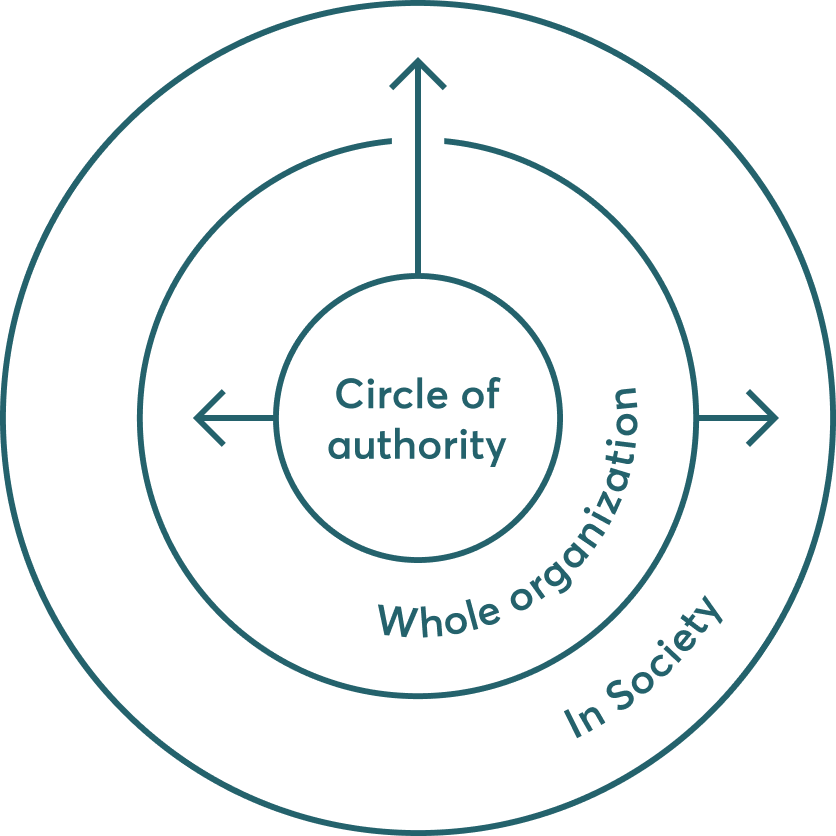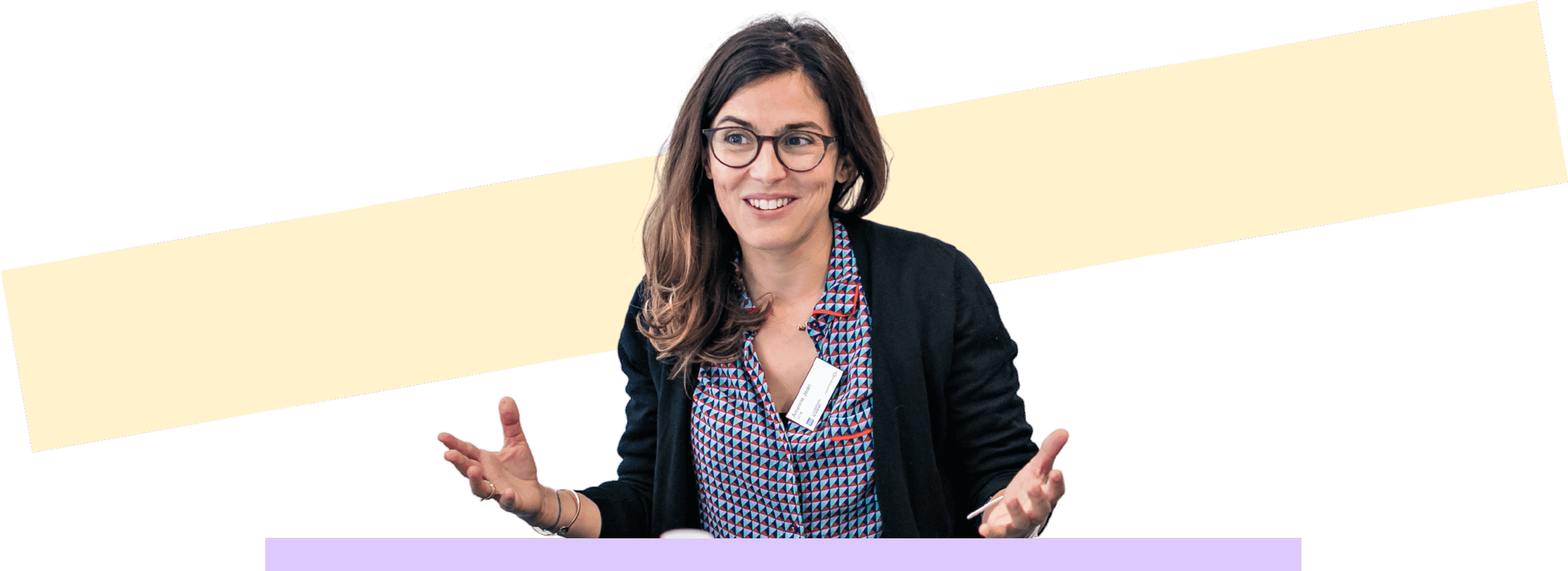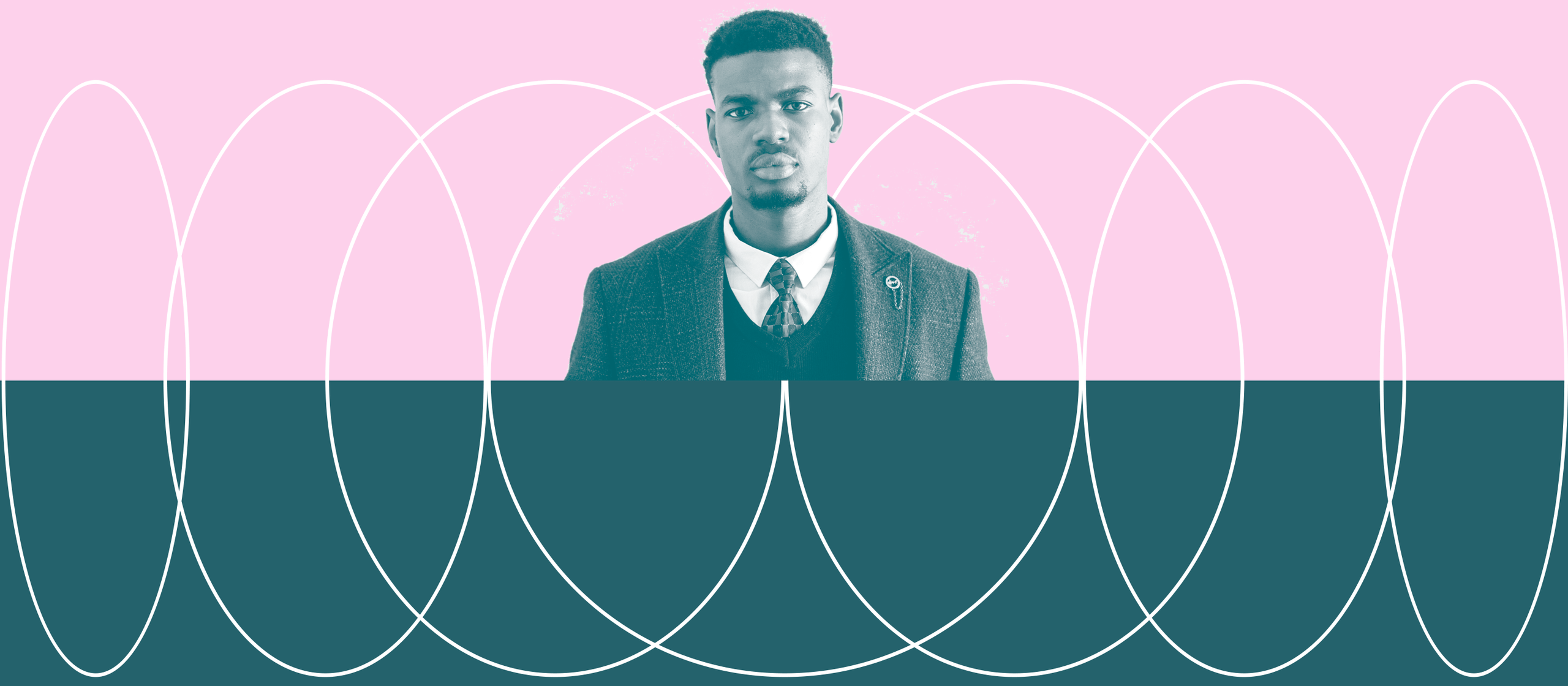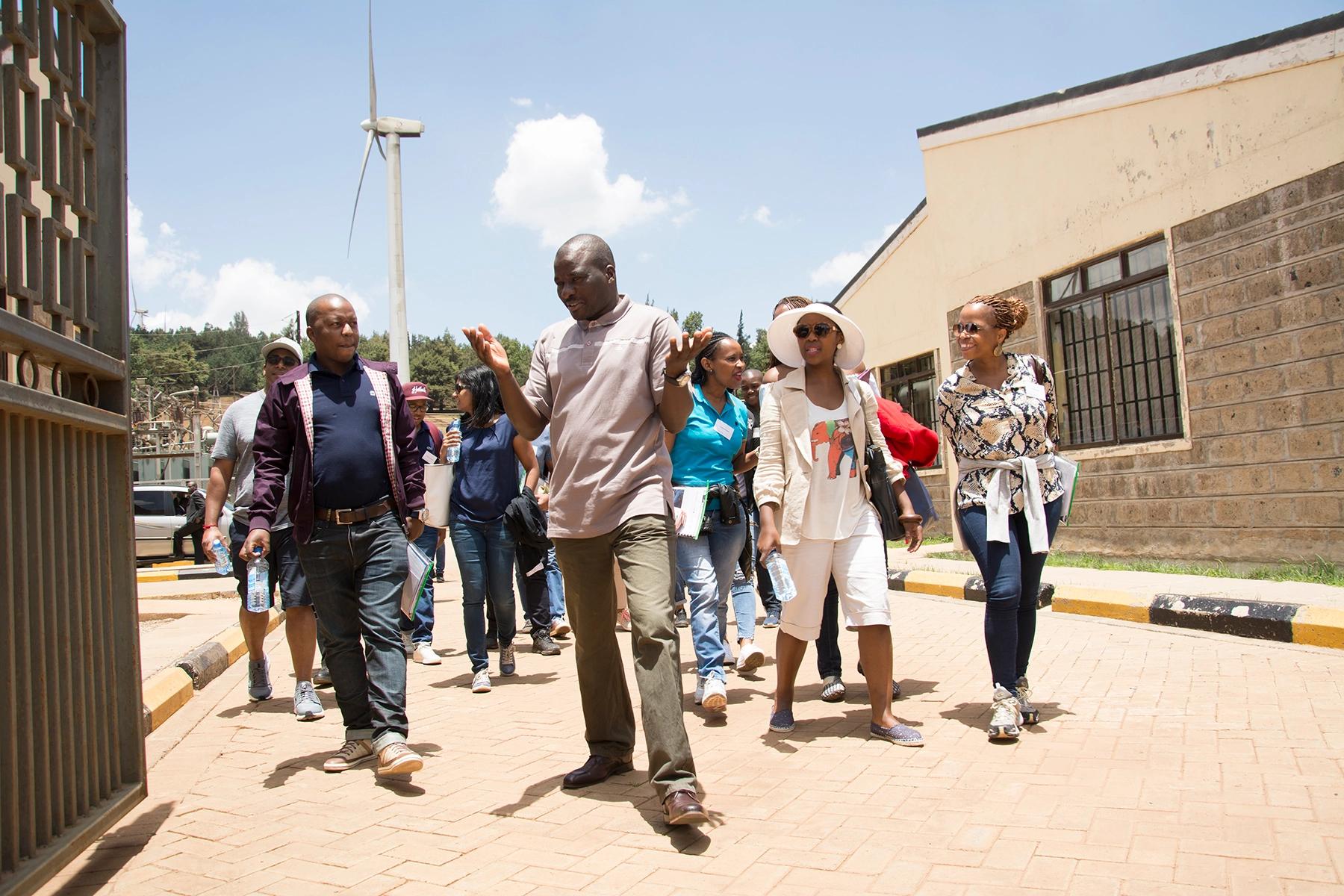-
What we doPersonal development
- Accelerating your impact
- Leadership for young people
- Navigating transitions
- Boosting collaboration
- All programmes
-
Social campaignsSocial campaigns
Taking a stand on social issues. Join us in investing for a better future
Read moreCurrent campaigns -
ImpactEvidence
Many successful leaders learn to lead in roles or circumstances where they have clear authority – they have a budget, accountability and a team of people whose job it is to support them. The result of this leadership model however is that many organizations operate in silos: with each division or department looking upwards and seldom sideways at issues that cross the verticals. Organizations need leaders to see across the whole organization and make the sum of the parts greater than the whole.
looking upwards and seldom sideways
This doesn’t stop at organizations. Society needs leaders who can overcome the silo problem inside their organization – and then move across different spheres of activity outside it and connect them too. In order to do this well, leaders need to lead peers, partners and stakeholders – and in doing so they may find that the skills that initially brought them success may not be enough. To operate effectively, they need a different approach to leadership – the ability to Lead Beyond Authority.

Circles of authority
Leaders can operate in three different spaces or ‘circles’ – the inner circle – where they have personal authority, the first outer circle – their organization as a whole where they might have less authority and the outermost circle – in society, where they may have no authority whatsoever.
Success in one circle is by no means an indicator of success in another. Those who are successful in their inner circle, where their authority is clearly defined and rarely questioned, eventually may need to venture into the outer circles. But here they will find that in order to make things happen they will have to rely on their capacity to persuade and their ability to form networks and coalitions. They will also have to adjust to new ways of working. Timescales, in particular, is something that many leaders stepping in to the outer circles struggle with. In their inner circle, new ideas and strategies can be implemented immediately, but in the outer circles, new initiatives can take much longer. They may find they have to become better at working with other people and may even have to adopt new approaches and methods in the way they lead.
What does it take to lead beyond authority?
Leading beyond authority requires many different skills. Leaders need to be able to work in new situations and should keep in mind that they need three key competencies –the right approach, a good strategic mindset and the ability to work with people (especially people who aren’t like themselves).
The right approach

Courage
Stepping out into the unknown requires courage, but sensible courage. It’s true that followers respect a brave leader, but bravery without sense can be dangerous. In unknown spaces, instincts can fail us and we must always be aware of our own inexperience. It’s therefore important to always respond to feedback and learn from it, especially from those that we trust. Our approach should also be underlined by resilience, in can be unpleasant in the outer circles – resilient leaders can cope with vitriol and keep going when it’s tough.

Independence
Legitimacy in the outer circles is often determined by independence. Independence is not a role or a position. It is not about whether you have the word independent in your job title or your job description. It is about how you are. It’s a state of mind. You need to be independent to operate in the outer circles – and you need to be known as independent too. If you are seen as being solely in it for yourself, your legitimacy can become eroded – this is why leaders in the outer circles regularly need to demonstrate their humility.

Passion
For leaders in the outer circles looking to influence without authority, their passion can often be their greatest asset. The trouble is that you can get it so wrong. You may get it wrong because you are passionately excited by something, and really you need to be cool and dispassionate if you are going to persuade others. The best leaders can communicate to different cultures and in spaces. They learn to translate their passion into languages that other leaders understand, and as a result their passion resonates, rather than getting in the way.
Strategic mindset

Strategic thinking
Beyond your authority, you have to be clever – and not just intellectually – you have to employ strategic thinking. You have to know that every system is different. Then you won’t underestimate the difference and get wrong-footed. Each time you take on something new, you need to recognize that power works in different ways.

Building coalitions
Building coalitions is essential – they contribute advice, they tell you if you're going wrong, they prepare the way for the change, and they enlist others. But coalitions and alliances cannot be built by people who think that success is a zero-sum game – to create unity you have to believe in teams. What’s more, many people think that coalition means consensus – which in turn means compromise. They imagine ending up with a miserable, watered down solution because you couldn’t get everyone to commit to a brave one. Yet many effective coalitions are comprised of people who are not interested in consensus. They are only interested in what works.

Timing
So many successful leaders who lead in the outer circles do so because they have an excellent sense of timing. They are prepared to play a long game and do not doom themselves to failure by pushing for quick decisions. But in their patience they are also ready; and when the time does eventually come, they are able to act at a moment’s notice. Playing this long game means that leaders have to be able to pre-empt the future – they spot trends, judge pace and as a result have a habit of ‘being there at the right time’. And as history so often teaches us, important change-makers only become important change-makers by being in the right place at the right time.
People

Interest in people
All the best exponents of leading beyond their authority have a profound interest in people. Not individuals, but people generally: human beings. It cannot be pretended – it either rings true or it doesn't. It gives them integrity and authenticity. They never glaze over, not once, and they never make assumptions about you. While you are with them, you know you are the most important person in the world for them.

Networks
People skills are important because without them you are unable to create networks – and not superficial networks of business cards and contacts but networks of relationships. Networks give us strength when we are wavering and question us when we are confident. They give us new learning and new ideas. They help us to implement our ideas. Nothing happens without networks.

CQ: Cultural Intelligence
It is not enough however to say, “I am good with people”. Because quite, often what we mean by that is “I am good with people like me”. We need to be good with people who aren’t like us and for this we need to become culturally intelligent.
Cultural Intelligence is the ability to cross divides and thrive in multiple cultures. It is crucial for those who are looking to lead beyond their authority because leaders today must be able to operate in a multitude of overlapping worlds: racial, cultural, political, geographical, religious and social. It is no longer possible to succeed by concentrating on one of these worlds and ignoring the rest.
The ability to work with other cultures is crucial if you are to create diverse networks. This principle is seen time and time again on Common Purpose programmes which are made up of leaders from different sectors and different cultures. Diversity breeds creativity. Homogeneous teams of people that agree with one another are stale and unexciting. In properly diverse teams, the ideas flow and the mix reveals worries and angles and connections and opportunities. Collaboration between diverse networks inspires new and exciting innovations. However, in order to lead a group of diverse people, you need to have enough Cultural Intelligence to communicate effectively, and continue to motivate them towards common goals.
Cultural Intelligence is also important for those looking to build trust in the outer circles. Coalitions do not function without high levels of trust. It's one thing to build trust in your own culture or sector, where the reference points for trust will be familiar on all sides. It is much harder to establish your own trustworthiness with people whose frame of reference for trust is very different. Developing Cultural intelligence allows us to get better at building trust with leaders from other cultures.
the ability to cross divides and thrive in multiple cultures
In practice
Cyril Ramaphosa, President of South Africa:
"When I started on the task of sorting out the mine workers, I consciously chose to leave the authority I had. Because I took the view that others before me had failed by trying to operate it this way and that I would be better off taking on the task with no authority at all.
In the 1970s, the trade union movement began to surge. In those days there was an unquestioned principle that you never went to the bosses. I broke it – and went to ask permission to organize the workers. Asking the bosses for permission was like going to Alcatraz and asking for permission to organize a prison break-out.
I knew I was taking a big risk. Many before me had tried to organize the mine workers; there had been many such attempts between 1946 and 1982. I knew I had to do something new. Why would I take a long detour (which is what it was) and break a fundamental principle about working with the bosses? I attracted a lot of criticism from the trade unions and the ANC. It was a painful and lonely path to take.
But I knew that the authority I appeared to have was the wrong one. The miners were living in an almost military environment – they were like hostages. I knew that I needed to move outside the rules, outside the traditional way of organizing the workers and outside the authority that I had been given.
So I went to the Chamber of Mines and asked for permission to operate in the mines: for offices and resources and food for my officials. The timing was right because a report had just come out saying that black miners needed to organize into legalized trade unions.
Once we got going properly, the workers stopped feeling so brow-beaten – and stopped behaving like hostages. It was like lancing a boil: there was an out-flowing of this quest for freedom – and we became the fastest growing union in the world, with 360,000 members eventually.
So I eventually moved back into authority – but a different one. To get there, I had to make a detour and operate way beyond my authority first. If I had not taken that detour and moved way outside my authority, it would have not been possible to organize the mine workers so quickly. Of course, the strikes they then backed played a crucial part in making the country ungovernable and causing the break-down of the apartheid government. The detour was all part of achieving our original objective."
Taken from Beyond Authority: Leadership in a Changing World by Julia Middleton.

The rewards
Leading in the spaces where one has little or no authority can be painstaking. So then why do it in the first place? The outer circle needs these types of leaders. Not simply as representatives of organizations that need to connect with the outside world, but as individual citizens in their own right. We all live in society – and society needs the brains and abilities of all of us if it is to run well. Democracy is not just about voting every few years and then complaining in the intervening period about politicians not being able to run the place properly. We all need to engage as citizens. Some will do it by entering politics. Others will do it by standing up as leaders of civil society. But we all need to be involved.
Both in organizations and society, we have become far too good at delegating everything to the great "they". This can be politicians. Or “the people upstairs”. Or “the experts”. Sometimes, it’s just someone – anyone – else. What we don’t realize is that, sometimes, there is no "they". It’s “us”. Or even “me”. It has almost gone so far that, when you do stand up, you are seen as acting illegitimately, unless you are a politician, the boss, or a professional carrying the relevant institutional or departmental brief. Jude Kelly is the Director of the WOW Foundation in London. She says:
"We cannot wait to be given legitimacy. We need to legitimize ourselves."
Therefore in order to carry out change, leaders need to be effective in leading beyond their authority.
Featured resources
Thought leadership
What is Cultural Intelligence?
In a global world where problems cross borders between cultures, we need leaders who can cross those boundaries.
5 April 2022
Leading beyond authority
Good leaders have purpose and passion for solving complex problems, but the work doesn't end there. Here, 6 things to know about leading beyond authority.





